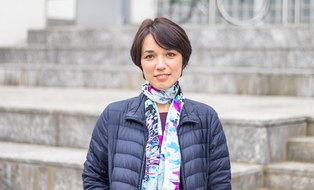Regulation of haematopoiesis in health and disease
Hematopoietic stem cells (HSCs) give rise to all types of blood and immune cells. Throughout the life of an organism, the majority of HSCs are quiescent. A few HSCs, however, divide frequently to produces haematopoietic cells through a specific sequence: an HSC gives rise to a progenitor cell, which then matures into a multipotent progenitor and later into a restricted progenitor. Tight regulation of the rate of stem cell division and differentiation of the progenitor cells is important for the maintenance of the healthy blood and immune cell system. Accumulation of somatic mutations and genome defects in hematopoietic stem cells and progenitor cells is a common cause for adult cancers such as acute myeloid leukaemia (AML) and myelodysplastic syndrome (MDS). How mutations accumulate and lead to cancers is however poorly understood. Defining the key predispositions and underlying mechanisms will enable a better prognosis of cancer and help a patient with individual therapies.
Recent research from the Grinenko group and collaborators uncovered unexpected occurrences during haematopoiesis. First, hematopoietic stem cells (HSCs) can directly develop into progenitor cells, without a previous round of cell division and second, HSCs are activated in response to physiological stresses such as raised levels of erythropoietin and acute thrombocytopenia. The activation of HSCs is tightly regulated by the complex network between HSCs/progenitors and bone marrow niche cells. Both scenarios are potentially threatening a healthy balance of HSC and progenitor cells and may be associated with replication stress leading to DNA damage and genome instability. The Grinenko group is investigating DNA damages and the role of RNA:DNA hybrids (R-loops) in accelerating mutation rates in HSC upon different haematological stresses.
- Aging and possible mechanisms of HSC rejuvenation
- Epigenetic regulation of HSC differentiation
- Role of R-loops in HSCs malignant transformation.
LAB MEMBERS
 © Hagen Gebauer
© Hagen Gebauer
Group leader
NameDr. med. Tatyana Grinenko PhD
|
POSITIONS |
|
|---|---|
| since 05/2020 | Mildred-Scheel-Nachwuchszentrum (MSNZ) research group leader affiliated with the Institute of clinical chemistry and laboratory medicine (IKL), TU Dresden |
| since 2019 | Staff sientist at IKL, TU Dresden |
| 2015-2018 | Postdoc at IKL, TU Dresden |
| 2009-2014 | Postdoc, Laboratory of Regeneration in haematopoiesis, CRTD, TU Dresden |
| 2005-2008 | Postdoc, Engelhardt Institute of Molecular Biology, Academy of Science Laboratory of molecular Biology of Development, Moscow |
| EDUCATION | |
|---|---|
| 2002-2006 | Ph.D., Institute of Carcinogenesis, N.N. Blokhin Cancer Research Center, Russia, Moscow, Lab. Regulatory Mechanisms of Immunity. Major: Oncology |
| 2001-2002 | Medical doctorate (MD), Moscow State University, Russia, Faculty of Fundamental Medicine |
| 1995-2002 | Studies of medicine, Moscow State University, Russia, Faculty of Fundamental Medicine |
|
HONORS |
|
|---|---|
| 2011 | Published Patent application EP 2380972B1. Methods and compositions for the expansion of somatic stem cells and progenitor cells. Calegari F., Artegiani B., Wackow C., Grinenko T.für Endokrinologie |
| 2006 | Award for Best PhD thesis in Russia academy of science |
| FUNDINGS | |
|---|---|
| 2019-2022 | Research grant from the Deutsche Forschungsgemeinschaft (DFG): "Role of CD38 in aging and rejuvenation of Hematopoietic stem cells" (GR 4857/2-1) |
SELECTED PUBLICATIONS
Ramasz B, Krüger A, Reinhardt J, Sinha A, Gerlach M, Gerbaulet A, Reinhardt S, Dahl A, Chavakis T, Wielockx B, Grinenko T.Hematopoietic stem cell response to acute thrombocytopenia requires signaling through distinct receptor tyrosine kinases. Blood. 2019 Aug 21. doi: 10.1182/blood.2019000721.
Grinenko T, Eugster A, Thielecke L, Ramasz B, Krüger A, Dietz S, Glauche I, Gerbaulet A, von Bonin M, Basak O, Clevers H, Chavakis T, Wielockx B. Hematopoietic stem cells can differentiate into restricted myeloid progenitors before cell division in mice. Nat Commun.,15;9(1):1898, 2018.
Singh RP*, Grinenko T*, Ramasz B, Franke K, Lesche M, Dahl A, Gassmann M, Chavakis T, Henry I, Wielockx B. Hematopoietic Stem Cells but Not Multipotent Progenitors Drive Erythropoiesis during Chronic Erythroid Stress in EPO Transgenic Mice. Stem Cell Reports. 10(6):1908-1919, 2018 (*equally contributed as first authors).
Mitroulis, I., K. Ruppova, B. Wang, L.-S. Chen, M. Grzybek, Grinenko T., A. Eugster, M. Troullinaki, A. Palladini, I. Kourtzelis, A. Chatzigeorgiou, A. Schlitzer, M. Beyer, L.A.B. Joosten, B. Isermann, M. Lesche, A. Petzold, K. Simons, I. Henry, A. Dahl, J.L. Schultze, Wielockx, B., N. Zamboni, P. Mirtschink, Ü. Coskun, G. Hajishengallis, M.H. Netea, and T. Chavakis. Modulation of haematopoietic progenitors is an integral component of trained immunity. Cell, 72(1-2):147-161, 2018.
Grinenko T, Arndt K, Portz M, Mende N, Günther M, Cosgun KN, Alexopoulou D, Lakshmanaperumal N, Henry I, Dahl A, Waskow C. Clonal expansion capacity defines two consecutive developmental stages of long-term hematopoietic stem cells. J Exp Med., 211 (2):209-15, 2014.
for complete publication record see ORCID
PhD-student
NameLilia Ibneeva
 © Robert Kuhnert
© Robert Kuhnert
Technical assistant
NameRobert Kuhnert
MD-student
NameDan Hammad
Send encrypted email via the SecureMail portal (for TUD external users only).
 © Iryna Kovtun
© Iryna Kovtun
PhD-student
NameIryna Kovtun
SELECTED PUBLICATIONS
Ramasz B, Krüger A, Reinhardt J, Sinha A, Gerlach M, Gerbaulet A, Reinhardt S, Dahl A, Chavakis T, Wielockx B, Grinenko T.Hematopoietic stem cell response to acute thrombocytopenia requires signaling through distinct receptor tyrosine kinases. Blood. 2019 Aug 21. doi: 10.1182/blood.2019000721.
Grinenko T, Eugster A, Thielecke L, Ramasz B, Krüger A, Dietz S, Glauche I, Gerbaulet A, von Bonin M, Basak O, Clevers H, Chavakis T, Wielockx B. Hematopoietic stem cells can differentiate into restricted myeloid progenitors before cell division in mice. Nat Commun.,15;9(1):1898, 2018.
Singh RP*, Grinenko T*, Ramasz B, Franke K, Lesche M, Dahl A, Gassmann M, Chavakis T, Henry I, Wielockx B. Hematopoietic Stem Cells but Not Multipotent Progenitors Drive Erythropoiesis during Chronic Erythroid Stress in EPO Transgenic Mice. Stem Cell Reports. 10(6):1908-1919, 2018 (*equally contributed as first authors).
Mitroulis, I., K. Ruppova, B. Wang, L.-S. Chen, M. Grzybek, Grinenko T., A. Eugster, M. Troullinaki, A. Palladini, I. Kourtzelis, A. Chatzigeorgiou, A. Schlitzer, M. Beyer, L.A.B. Joosten, B. Isermann, M. Lesche, A. Petzold, K. Simons, I. Henry, A. Dahl, J.L. Schultze, Wielockx, B., N. Zamboni, P. Mirtschink, Ü. Coskun, G. Hajishengallis, M.H. Netea, and T. Chavakis. Modulation of haematopoietic progenitors is an integral component of trained immunity. Cell, 72(1-2):147-161, 2018.
Grinenko T, Arndt K, Portz M, Mende N, Günther M, Cosgun KN, Alexopoulou D, Lakshmanaperumal N, Henry I, Dahl A, Waskow C. Clonal expansion capacity defines two consecutive developmental stages of long-term hematopoietic stem cells. J Exp Med., 211 (2):209-15, 2014.
CONTACT
 © Marc Eisele
© Marc Eisele
Grinenko Lab

